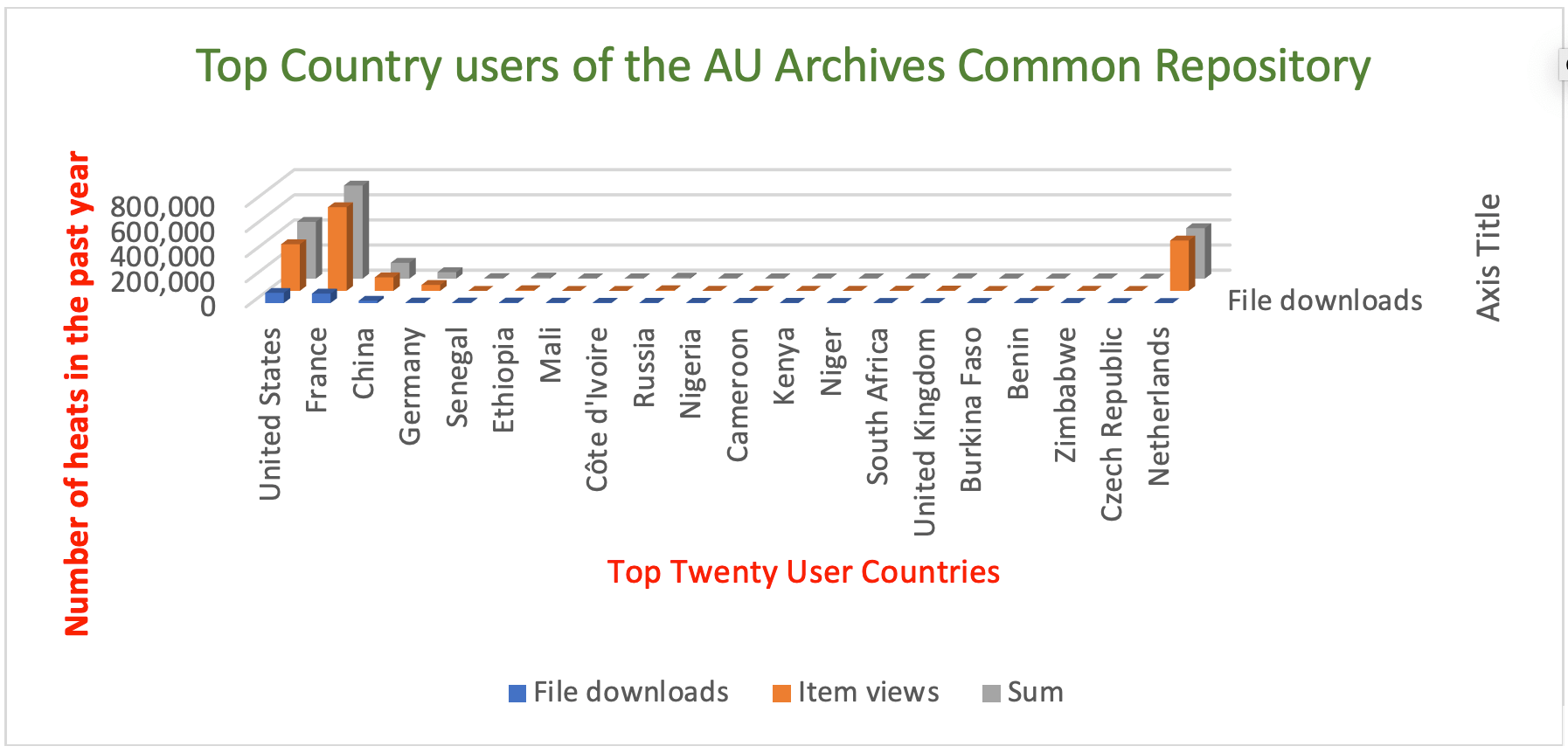The African Union Archives: a veritable treasure trove for AU staff members, structures, researchers and citizens
The African Union Archives: a veritable treasure trove for AU staff members, structures, researchers and citizens
The African Union (AU) Archives is the central depository for the AU information output. It acquires, processes, manages and preserves materials of enduring value to the Union. The address for the site is https://archives.au.int.
The overall responsibility of the Archives is to ensure that the OAU and AU documentary heritage is collected, conserved and disseminated to identified clients. Though situated within the African Union Commission in Addis Ababa, the archives facilitates access to all information resources emanating from the Union to the entire African Union, including the AU Commission, other organs, regional offices, representational offices, missions as well as collaborating partners and researchers, whose intellectual works build on the African Union’s core knowledge base.
The online repository currently has 8,191 dated, and 634 undated documents as follows:
|
Period |
Number of documents |
|---|---|
|
1955 - 1959 |
9 |
|
1960 - 1969 |
489 |
|
1970 - 1979 |
431 |
|
1980 - 1989 |
443 |
|
1990 - 1999 |
516 |
|
2000 - 2009 |
2692 |
|
2010 -2019 |
3451 |
|
2020 - 2021 |
160 |
Documents that have been digitised and are accessible on the African Union Common Repository range from the First Session of the Preparatory Conference of African Ministers of Foreign Affairs of May 1963, when the OAU was formed, to the Council of Ministers’ Twenty-First Ordinary Session of May 1973. The remaining backlog from 1973-2005 will be digitalized by the third quarter of 2022.
The archives unit was formed after it became apparent that the rich African heritage held across the Union was scattered in different archives or record centers, and was inaccessible to most of the intended clientele. Through collaboration with other offices of the Union, the Archives has pooled together most of the documents to create a one stop shop and make possible, single searches that yield collated retrievals from the various sites. Whenever users search the repository on the Archives site, they are in fact searching documents from several participating offices.
Users of the AU Archives fall into two categories as follows: Primary clientele are AU staff members at AUC and other sites, the African Union Permanent Representatives Committee (PRC), Member States, the diplomatic corps and international organizations. Secondary clientele include African and international researchers interested in the work of the African Union, and visitors of the Union.
The usage statistics so far, however indicate that primary target clients do not make much use of the archives. The table below shows that top users are from countries outside Africa i.e. France, the United States of America, the Netherlands, China and Germany. The thirteen African countries showing among the top twenty all registered less than 200,000 hits in a year. The archives unit, which recently became part of the Directorate of Information and Communication is currently engaged in efforts to encourage more African countries and citizens to utilize this rich heritage.

Readers of this article are invited to visit the AU Common Repository site to see the special collections that are currently held in digital formats and in full text. The document collection generated during the period 1955 to 1999 is particularly important because these were never born digital. For further assistance on the use of the AU Common Repository System or any AU Archives related issues, readers may contact: Chedza Molefe molefec@africa-union.org, Stephen Mayega mayegas@africa-union.org or Sirak Tesfaye SirakT@africa-union.org.









